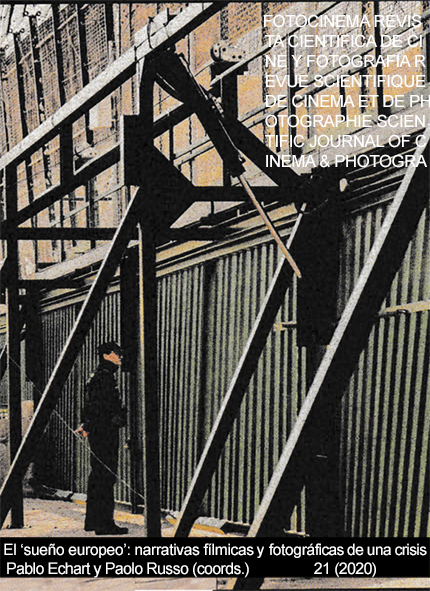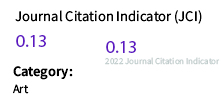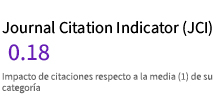Sexuality, Body Politics and Socio-Educational Function of the Cinema in Touch Me Not (Adina Pintilie, 2018)
DOI:
https://doi.org/10.24310/Fotocinema.2020.vi21.10017Keywords:
Sexuality, Psychoanalysis, Body politics, Filmic interpellation, Biopower, Socio-Educational cinemaAbstract
This article analyses the opera prima by the filmmaker Adina Pintilie, Touch Me Not (Nu m? atinge-m?, 2018), winner of the Golden Bear and Best First Feature at the Berlin Film Festival. First, we look at the context of the film text, focusing on its detachment from the tradition of the so-called Romanian New Wave and its hybrid aesthetic approach, halfway between observational and experimental cinema. Secondly, we analyse the theses that the film discourse proposes in its thematization of sexuality and body. To do this, we use the Freudian theorization of sexuality and Foucaultian reflection on biopower, following Teresa de Lauretis’ approach (2008) to combine the two authors. Throughout the text we address the way in which the body becomes a space from which to think about the relationship between the individual and the social, the private and the public, the relationship with the other or with oneself. Finally, we conclude by highlighting how, with a clear political and socio-educational motivation, the movie proposes a use of a filmic interpellation that, explicitly, tries to involve spectators both intellectual and emotionally.
Downloads
Metrics
Publication Facts
Reviewer profiles N/A
Author statements
Indexed in
-
—
- Academic society
- N/A
- Publisher
- Universidad de Málaga
References
Ayuso Ros, F. (2014b). Policía, adjetivo (Corneliu Porumboiu, 2009): Deconstrucción, realismo y crisis del lenguaje. Revista F@ro, 1(19), 13-29.
Butler, J. (2016). Los sentidos del sujeto. Barcelona: Herder.
De Lauretis, T. (1994). The Practice of Love: Lesbian Subjectivity and Perverse Desire. Bloomington: Indiana University Press.
De Lauretis, T. (2007). Figures of Resistance: Essays in Feminist Theory. Urbana and Chicago: University of Illinois Press.
De Lauretis, T. (2008). Freud’s Drive. Psichoanalysis, Literature and Film. New York: Palgrave Macmillan.
De Lauretis, T. (2012). Panteridad. Vivir en un cuerpo dañado. EU-topías. Revista de interculturalidad, comunicación y estudios europeos, 4, 9-18. Recuperado de: http://eu-topias.org/panteridad/
Foucault, M. (1998). Historia de la sexualidad. Vol. 1. La voluntad de saber. Madrid: Siglo XXI.
Gordon, C. (ed.) (1980). Power/Knowdledge. Selected Interviews and Other Writings 1972-1977. Michel Foucault. New York: Pantheon Books.
Gray, C. (2018). Touch Me Not: the Berlinale-winning Romanian film that has provoked international outrage. The Calvert Journal. Recuperado de: https://www.calvertjournal.com/articles/show/9730
Ieta, R. (2010). The New Romanian Cinema: A Realism of Impressions. Film Criticism, 34(2/3), 22-36. Recuperado de: https://www.jstor.org/stable/44019235?seq=1#page_scan_tab_contents
Laplanche, J. & Pontalis, J. B. (1968). Fantasy and the Origins of Sexuality. The International Journal of Psychoanalysis, 49(1), 1-18.
Laplanche, J. y Pontalis, J.B. (2004). Diccionario de psicoanálisis. Buenos Aires: Paidós.
Marks, L. (2000). The Skin of the Film: Intercultural Cinema, Embodiment, and the Senses. Durham and London: Duke University Press.
Mulvey, L. (1988). Placer visual y cine narrativo. Valencia: Episteme.
Nasta, D. (2013). Contemporary Romanian Cinema: The History of an Unexpected Miracle. London and New York: Wallflower Press.
Nasta, D. (2016). Contemporary Romanian Auteurs: Politics, Irony, and Reflexitivy. In S. Jeong and J. Szaniawski (eds.). The Politics of Authorship in 21ts Century Cinema (pp. 159-178). New York: Bloomsbury.
Nasta, D. (2019). Beyond Modernity: the Stylistic Divide and the New Romanian Cinema. In C. Stojanova and D. Duma (eds.) The New Romanian Cinema (pp. 23-35). Edinburgh: Edinburgh University Press.
Nichols, B. (2001). La representación de la realidad. Barcelona: Paidós.
Pié, A. (2012). Pedagogía de la interdependencia. En A. Pié (coord.). Deconstruyendo la dependencia: propuesta para una vida independiente (pp. 213-229). Barcelona: UOC.
Pié, A. (2014). Por una corporeidad postmoderna. Nuevos tránsitos sociales y educativos para la interdependencia. Barcelona: UOC.
Pop, D. (2014). Romanian New Wave Cinema. An Introduction. North Carolina: McFarland.
Popan, E. R. (2014). Recent Romanian Cinema: Is It a Real New Wave or Just a Splash in the Water?. The Communication Review, 17 (3), 217-232. https://doi.org/10.1080/10714421.2014.930273
Sobchack, V. (2004). Carnal Thoughts: Embodiment and the Moving Image Culture. Berkeley and Los Angeles: University California Press.
Uricaru, I. (2019). No Melo: Minimalism and Melodrama in the New Romanian Cinema. In C. Stojanova and D. Duma (eds.) The New Romanian Cinema (pp. 50-62). Edinburgh: Edinburgh University Press.
Yao, W. (2018). Adina Pintilie and the End of Romanian New Wave. Close Up: Film and Media Studies, 2(2), 47-60. Recuperado de: https://unatc.ro/cercetare/reviste/CloseUp_2018_online.pdf.
Downloads
Published
How to Cite
Issue
Section
License
All contents published in Fotocinema Revista científica de cine y fotografía are protected under the Creative Commons Attribution-NonCommercial-ShareAlike 4.0 International (CC BY-NC-SA 4.0) license. All about this license is available in the following link: <http://creativecommons.org/licenses/by-nc-sa/4.0>
Users can copy, use, redistribute, share and exhibit publicly as long as:
- The original source and authorship of the material are cited (Journal, Publisher and URL of the work).
- It is not used for comercial purposes.
- The existence of the license and its especifications are mentioned.
There are two sets of authors’ rights: moral and property rights. Moral rights are perpetual prerogatives, unrenounceable, not-transferable, unalienable, imprescriptible and inembargable. According to authors’ rights legislation, Fotocinema. Revista científica de cine y fotografía recognizes and respects authors moral rights, as well as the ownership of property rights, which will be transferred to University of Malaga in open access. The property rights are referred to the benefits that are gained by the use or the dissemination of works. Fotocinema. Revista científica de cine y fotografía is published in an open access form and it is exclusively licenced by any means for doing or authorising distribution, dissemination, reproduction, , adaptation, translation or arrangement of works.
Authors are responsable for obtaining the necessary permission to use copyrighted images.














13.png)



